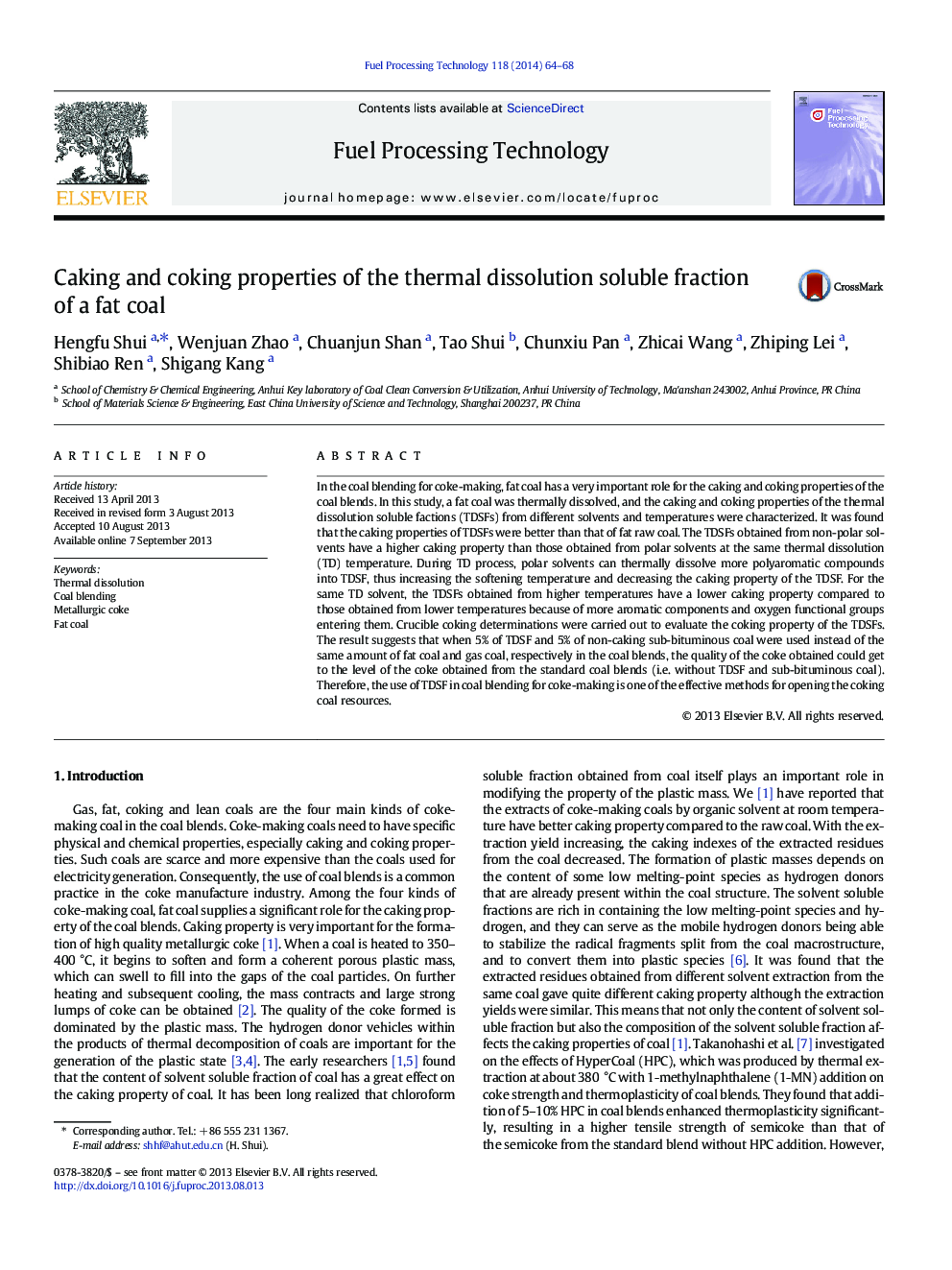| Article ID | Journal | Published Year | Pages | File Type |
|---|---|---|---|---|
| 6657260 | Fuel Processing Technology | 2014 | 5 Pages |
Abstract
In the coal blending for coke-making, fat coal has a very important role for the caking and coking properties of the coal blends. In this study, a fat coal was thermally dissolved, and the caking and coking properties of the thermal dissolution soluble factions (TDSFs) from different solvents and temperatures were characterized. It was found that the caking properties of TDSFs were better than that of fat raw coal. The TDSFs obtained from non-polar solvents have a higher caking property than those obtained from polar solvents at the same thermal dissolution (TD) temperature. During TD process, polar solvents can thermally dissolve more polyaromatic compounds into TDSF, thus increasing the softening temperature and decreasing the caking property of the TDSF. For the same TD solvent, the TDSFs obtained from higher temperatures have a lower caking property compared to those obtained from lower temperatures because of more aromatic components and oxygen functional groups entering them. Crucible coking determinations were carried out to evaluate the coking property of the TDSFs. The result suggests that when 5% of TDSF and 5% of non-caking sub-bituminous coal were used instead of the same amount of fat coal and gas coal, respectively in the coal blends, the quality of the coke obtained could get to the level of the coke obtained from the standard coal blends (i.e. without TDSF and sub-bituminous coal). Therefore, the use of TDSF in coal blending for coke-making is one of the effective methods for opening the coking coal resources.
Keywords
Related Topics
Physical Sciences and Engineering
Chemical Engineering
Chemical Engineering (General)
Authors
Hengfu Shui, Wenjuan Zhao, Chuanjun Shan, Tao Shui, Chunxiu Pan, Zhicai Wang, Zhiping Lei, Shibiao Ren, Shigang Kang,
